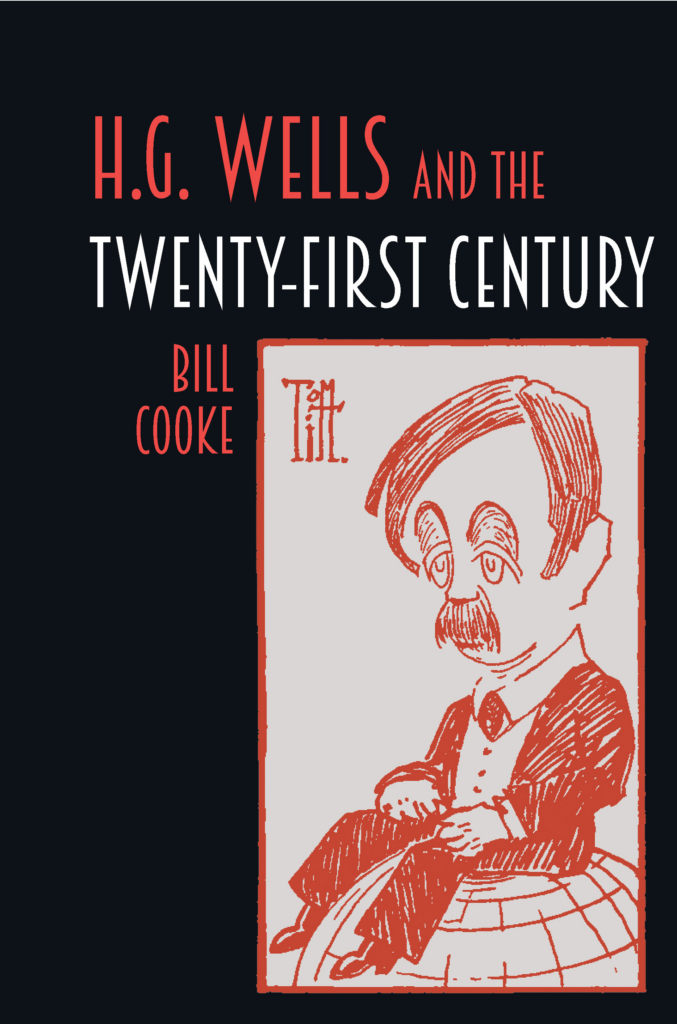
Although it covers a lot of ground, H. G. Wells and the Twenty-First Century by Bill Cooke reads like a brisk intellectual romp. Cooke achieves this by organising his material deftly into departments, like Wells and women or Wells and war, and then dealing with each with clarity and dispatch, as well as an array of conclusive quotations, both by Wells and by others.
Ranging across Wells’s cornucopia of books, stories, and articles—not to forget his numerous speeches—the book appraises what influences he came under. It delves into what his standpoints were over the course of the decades—and confronts them with the positions others were holding at each time. It includes what comments he elicited, then and now. And, ranging through it all, is the work’s thesis, which it proves swimmingly: Wells’s living resonance today. By doing all this, it offers a kind of condensed stroll through the principal intellectual, political, and social issues that have roiled the world from the late 19th century right up to the present. The man had a couple of notable blind spots in his thinking, as will be seen, ones that pass unremarked by Cooke—but what an amazing number of things he got right, usually long before others did.
Here, for example, is Wells predicting a Trump-like phenomenon as the most likely way US democracy could be undermined: ‘It seems more probable that an intellectually cruder and more instinctive sort of revolutionism is likely to appear in America.’ He saw this in 1935.
Bill Cooke himself has summarised his points in a recent article for the Freethinker. Alongside the main matter of Wells’s continued relevance, the other contentions that Cooke’s book develops include that Wells followed Schopenhauer, a great pessimist among philosophers, even more than T H Huxley, his more often cited influence; that he wasn’t guilty of being a misogynist, racist, anti-Semite, or blind believer either in scientific progress or in future bliss—or of the other charges that have been made against him (largely, Cooke argues, because of a defective or incomplete reading of him); that, while he made definite errors of judgment and rash statements, mostly at the beginning of his career, Wells himself corrected them, often quickly, as he was led to even more liberal positions, the reverse of most people’s political evolution; and that his later work, frequently dismissed as inferior or inconsequential, is, in reality, the most significant.
Cooke can prove all these things because he has combed Wells’s oeuvre so thoroughly; for instance, he can command such facts as the relative frequency with which a given person’s name or a subject comes up in Wells’s entire writings. One notable feature of H. G. Wells and the Twenty-First Century is contained in one of the appendices: an actual list—the first ever, Cooke proudly points out—of the legendary forecaster’s predictions for the future, the correct and the incorrect alike—although for some of those that have not come to pass, we haven’t, of course, and thankfully, seen the end of time yet. (None of the misfires is funnier than the forecast that ‘the work of the lawyer will decline in the decades to come’.)
Cooke groups the predictions by subject, and within each section places them chronologically: this helps one in understanding their evolution. He makes useful distinctions between such related concepts as premonitions, prophecies, predictions, and outcomes that are being warned against.
The author’s close analysis of Wells’s religiosity, including the impact that Buddhism had on him, is another especially interesting facet of the book. Wells saw constant change, in everything, as not just inevitable but to be encouraged, and he embodied this view in his fluctuating level of religious belief. Cooke settles on the label of ‘atheist spirituality’ overall; it may be pointed out that the flavour of what are described as ‘metaphysical’ aspects of Wells’s thinking, when he was going through one of those phases, might perhaps be better rendered as ‘mystical’.
There is a confusing moment in the analysis—but, well, it is religion we are talking about. Wells is quoted as affirming ‘that this ultimately incomprehensible universe (…) is systematic and not chaotic and that I (…) and likewise all other things are important in that scheme’. (Totally unwarranted, religious wishful thinking, which Wells admits is ‘an act of faith’.) Then, just ten lines later, Cooke says that ‘Having established his unimportance in the wider scheme of things, Wells…’ He has to be referring to something else that Wells said earlier—the flat contradiction isn’t Cooke’s but Wells’s, and Cooke is also talking about how Wells worked to try to mitigate or compensate for man’s limitations. Yet the close juxtaposition of the statements cannot avoid being jarring.
Most of the time, in any case, Wells was a no-nonsense person in this, as in the majority of things.
With, as said, an unnoticed blind spot or two. All through his career, as Cooke makes clear, Wells held that if there was any hope for mankind to avoid the many great perils facing it, it was through more and more education (prefiguring Tony Blair’s ‘top priority’ of ‘education, education, education’, perhaps?). Although he spoke out against belief in panaceas and simple solutions, education was for all intents and purposes a panacea for him, or the closest thing to one. His only significant worries, it would seem, were that the teachers not be dull fuddy-duddies and that the curricula be kept constantly updated. With all due deference (and envy), there is a gaping problem here.
Why envy? Because if he did not notice it—and the same goes for those observers and readers who also don’t, until it is pointed out—it must be because he had the huge luck never to have lived under a dictatorship, as opposed to maybe a visit here and there. (It is not irrelevant, then, to bring out at this point that the present reviewer hails from Argentina.) Wells did visit the Soviet Union three times, including at its worst, and even held a talk with Joseph Stalin. Unlike others such as George Bernard Shaw, he was not hoodwinked. But it would appear that education in the USSR was not among the subjects he and Stalin discussed, at least not seriously, nor did he stick around long enough to investigate it freely on the ground, supposing he had been allowed to.
It should go without saying that education is absolutely essential, almost like breathing, and wonderful if done well. Unfortunately, education can be ideologically distorted into a force for evil, useful for purposes like indoctrinating people in favour of the ruling regime, fostering a personality cult, inciting hatred for some domestic or external ‘enemy’, smothering the populace with some religious security blanket, and brainwashing in general. This realization forces the question of what education ‘done well’ is—and who is to decide it. And with this, education, instead of being a force from ‘outside’ that is useful for facing mankind’s problems, becomes one more of the issues that would have to be sorted out by the world as a whole, as Wells advocated.
Apart from that, no indication is given that Wells, who lived until after World War II, was given pause by another thing—the fact that so many of the monsters of his time arose in a country with one of the best education systems in the world: Germany. Wells correctly recognised education’s colossal importance; alas, it is not the nostrum he saw it as.
(When Cooke admits that Wells’s ‘faith in the redemptive power of education outran the evidence’, he is referring to doubts about how much even education ‘done well’ can achieve, not to the problems mentioned above.)
Another matter that can be seen as troubling, though less centrally so, involves one of the five principles of liberty that Wells enunciated: the principle that ‘lying is the greatest crime’. (You will have to read the book to find out the other four.) Even supposing that Wells was excluding the white lies (‘No, you look great!’) that keep the machinery of social intercourse oiled—and if so, he should have made it clear somehow—the statement is drivel, and Cooke, who takes pains to paint the portrait warts and all, should at least have harrumphed over it. (Instead, he declares that the value of all five principles becomes ever ‘more apparent’.)
Of course, lying isn’t nice, and it can cause enormous grief. But how can it be baldly stated to be a crime worse than murder, kidnapping, rape, torture, or genocide? Wells didn’t usually go for meaning something different from what he said (for metaphorical, poetical, or whatever other reasons), so we have to take this ‘principle’ at face value.
Another lapse that needs to be identified as such is found when Wells warns against the ‘boredom’ of an ‘uninteresting daily job’, should ‘we rescue ourselves… from poverty and discomfort’—in Cooke’s words, ‘the ennui of modern life’. This fits into the category of imagining a golden age of yore, from which modern life is a comedown. As a canard, it is very widespread, but Wells, being an insightful interpreter of history, should be the last person to fall for it, even if unconsciously and impetuously. Surely he cannot be saying that an uninteresting daily job is more bearable if enlivened by poverty and discomfort. So, is he instead saying that, in the old days, hoeing and picking harvests was never found boring?
The universe doesn’t owe us a life free of drudgery and filled with interesting alternate activities (for that matter, it doesn’t owe us any kind of life). If we are stuck with tedious work, we should be thankful if we don’t have to do it for sixteen hours a day (doubly thankful if we do it with air conditioning), and devote ourselves to activities that we find interesting in the off-hours we may have. (By the way, boredom, not at the job but from too much leisure, is specifically not what Wells was talking about.)
A pleasing detail: in describing Wells’s youthful religious toing and froing, Cooke reports that ‘Wells mentions coming across The Freethinker in Portsmouth’.
Lastly, down at the level of minutiae. A blithe disregard for the difference between ‘who’ and ‘whom’ may be taken as a purposeful statement, a protest issued against ‘restrictive’ grammar, albeit perhaps an odd one in a book published by a university press (Liverpool’s); in any event, a statement addressed to who it may concern. Still, attention can be directed to a trio of singularities that certainly are not deliberate, and which somehow got through the writing and editing process. ‘Pedalling’ where ‘peddling’ was meant. Ditto ‘born’ for ‘borne’. And double ditto, ‘break’ for ‘brake’. These things could be touched up in a second edition of the book—which so good a work much merits.


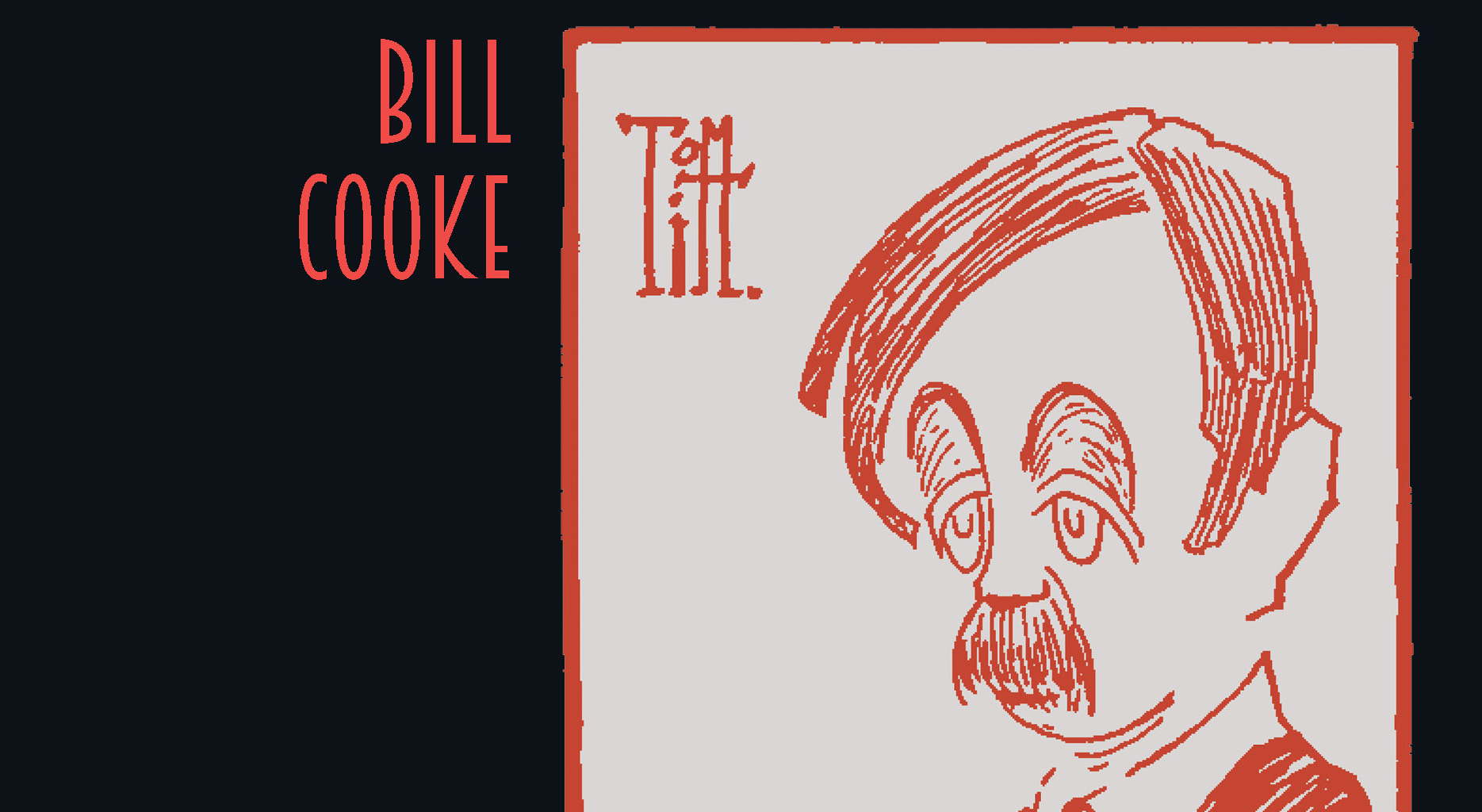
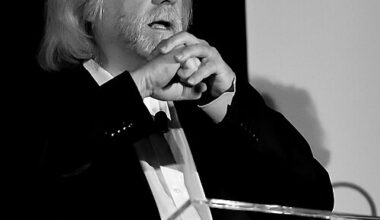


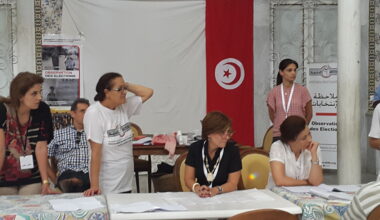
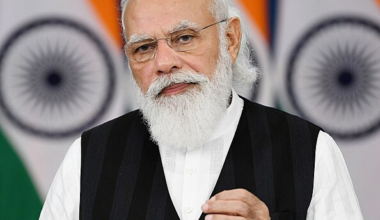
Your email address will not be published. Comments are subject to our Community Guidelines. Required fields are marked *
Donate